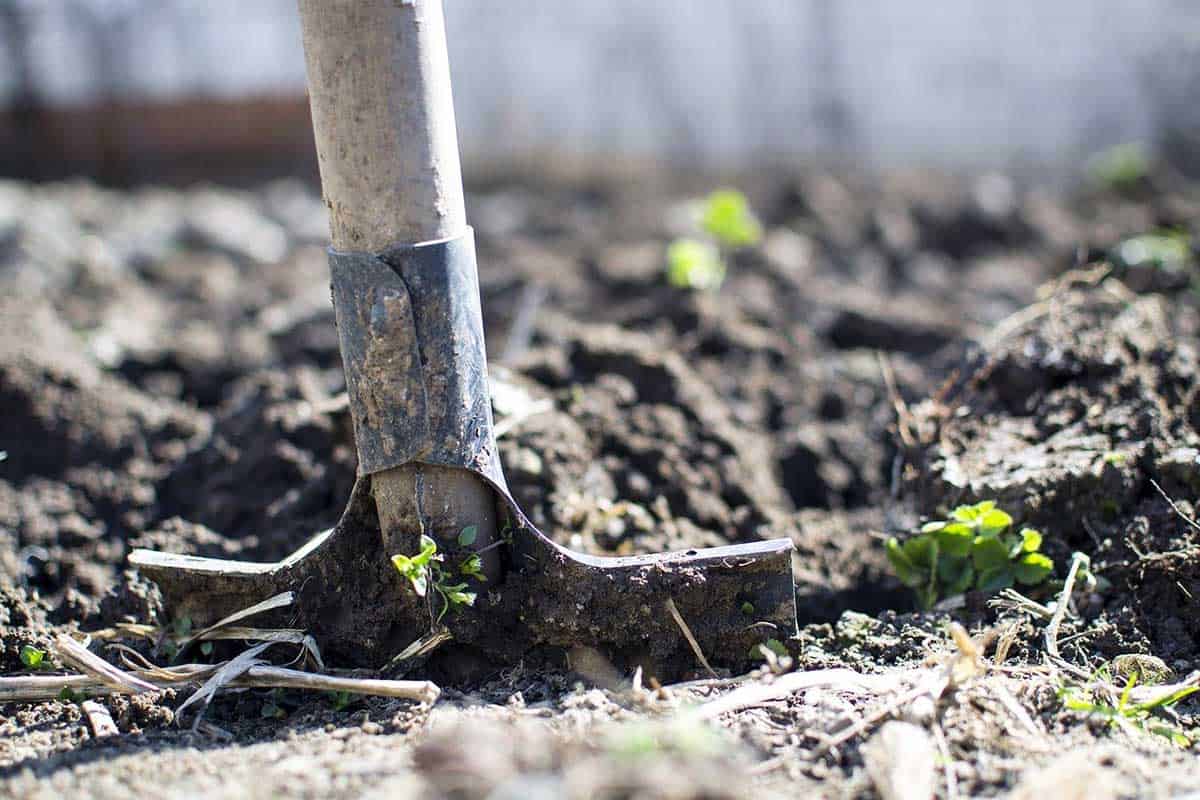This page may contain affiliate links. If you click and buy, we might get a small commission at no cost to you.
With the weather warming, people are preparing for spring and summer do-it-yourself projects that range from landscape renovations to installing a pool. These projects often require grabbing a shovel and breaking ground. Before you dig, however, you may be wondering if there is a depth limit to how deep you can dig. When considering how deep you can dig in your backyard, it’s important to do things safely. While it is typically safe to dig a small hole, such as for planting flowers, there are some things to consider before you begin your digging project.
How deep can I dig in my backyard?
Digging small, shallow holes of less than 12 inches usually won’t result in any snags or complications. The issue typically becomes a problem due to utility lines that run underground, or digging so deep that it risks injury to you and your neighbors.
If you’re digging at a depth of 4 inches or less, you shouldn’t run into any utility lines since they are usually buried at deeper depths. However, things happen and utility companies don’t always run the lines as deep as they should.
To play it safe, always contact 811 before digging any size hole to make sure you don’t accidentally hit a utility line. While this can seem like an unnecessary step, the service is completely free and goes a long way to help prevent avoidable accidents.
It’s possible you may need a special permit if you dig deeper than 5 feet deep, but there is no real law saying there is a limit on how deep you can dig. Just be sire to dial 811 and make sure you aren’t going to hit anything.
Also keep in mind, if you are planning to dig some type of tunnel or structure underneath the ground you will definitely need to get the proper permits just like you would if you built a structure on top of the ground.
Do I need a permit to dig in my backyard?
Whether or not you need a permit varies depending on your location, why you are digging, and what depth you plan on digging. In the United States, a permit is not typically required if you are digging less than 5 feet deep. With that said, however, some areas have strict laws pertaining to digging. In California, for example, you must contact 811 before you dig, no matter the depth. Failure to do so can result in a hefty fine.
What to do before you dig
Even if you’re not required to have a permit, there are a few things you should do before digging to keep yourself and others safe.
Contact your local courthouse
If you’re planning on digging, it’s best to first reach out to your local courthouse to ensure you don’t need a permit. While no one wants to pay for a permit when digging on their own property, it is best to play it safe and get the go ahead before breaking ground. This will help prevent any potential fines that may occur if you dig before obtaining permission.
Find the utility lines by calling 811
Utility lines are often installed below ground, and digging without first knowing their location can quickly turn into a serious issue. Not only can you knock out telephone or cable lines, but you can accidentally dig into a sewage or water pipe, or even a gas line. The potential problems that can occur by digging into a utility line range from cutting off water to all the homes in your neighborhood to something more serious such as a fire or explosion.
What happens when I call 811?
811 is a free service that helps keep you and those around you safe. When you call 811, you are connected to a representative in your state that will ask and answer your questions.
They will get your information to find out more about your location and your digging project. After they have collected this info, they will provide you with a ticket number and let you know how much time the utility companies have to respond to your request. They will also let you know how to confirm that the utility companies have responded. This is required before you can safely start digging.
Once the utility companies receive your request, they will send out a representative who will mark your property to signify where their buried lines are located. This lets you know their exact location and where you should refrain from digging.
You can now put in a request via the 811 online form. This makes the entire process even easier, since you don’t have to call in. To start, simply select your state from the official 811 website, click on Homeowner Online Request and fill out the form.
Conclusion
Key Takeaways
- Holes that are deeper than 4 inches run the risk of encountering a utility line.
- A permit is not typically needed for holes less than 5 feet deep.
- Call 811 before you dig, no matter what the depth or size. This will help prevent accidentally running into a utility line.
- Even if you’re not required to have a permit, you should still call 811 before breaking ground.
Each area has its own requirements, laws, and regulations when it comes to how deep someone can dig on their property. Depending on your city, you may be required to obtain a permit.
To help ensure you dig safely, reach out to 811 at least two days before you start digging. They will send the utility companies out to mark your property indicating where their underground lines run. Once the property has been marked, you can safely begin your digging project.



